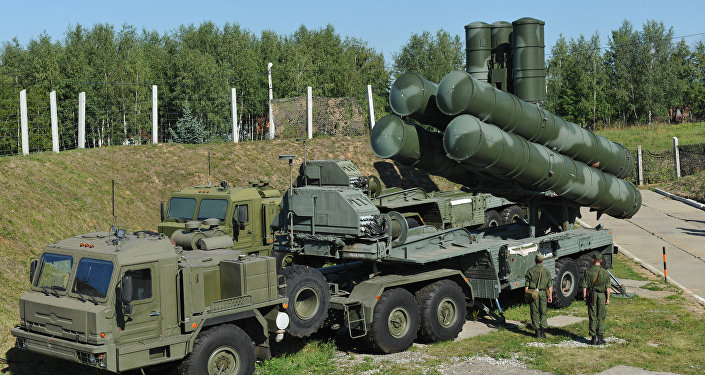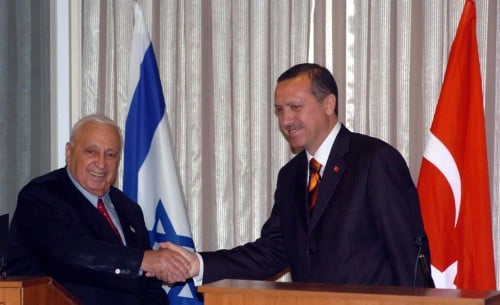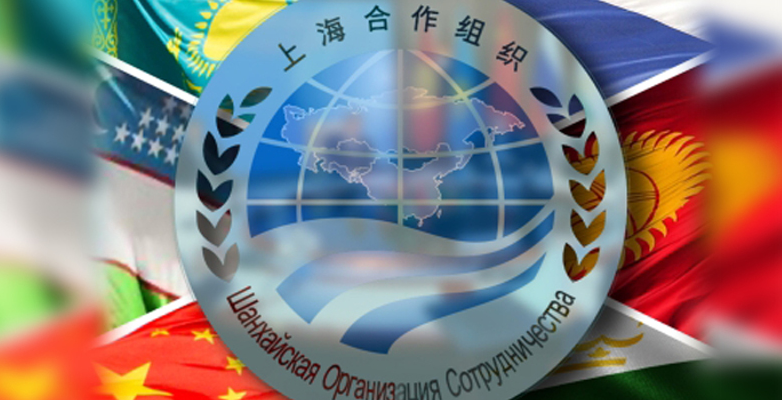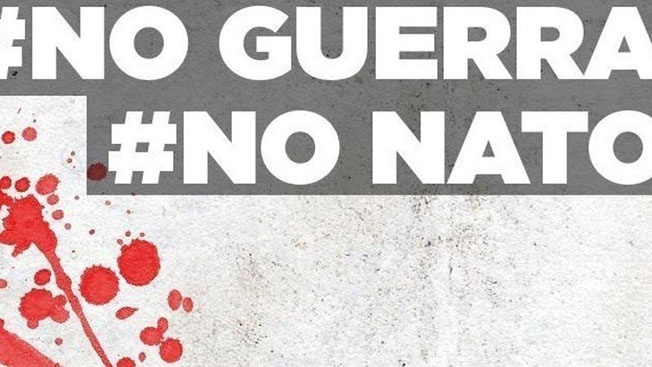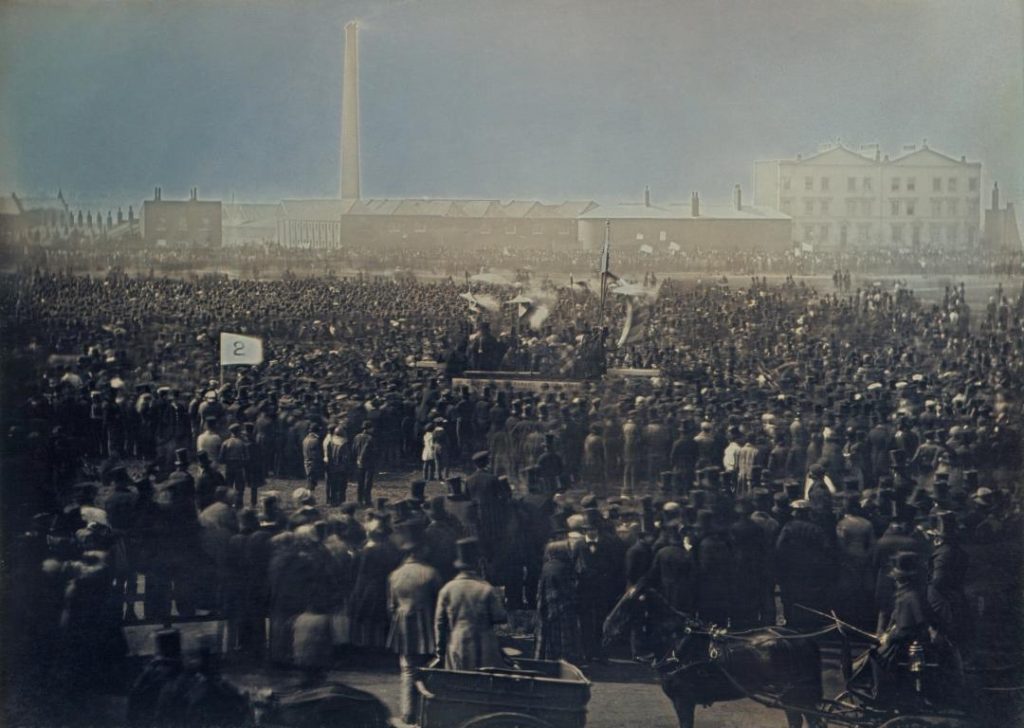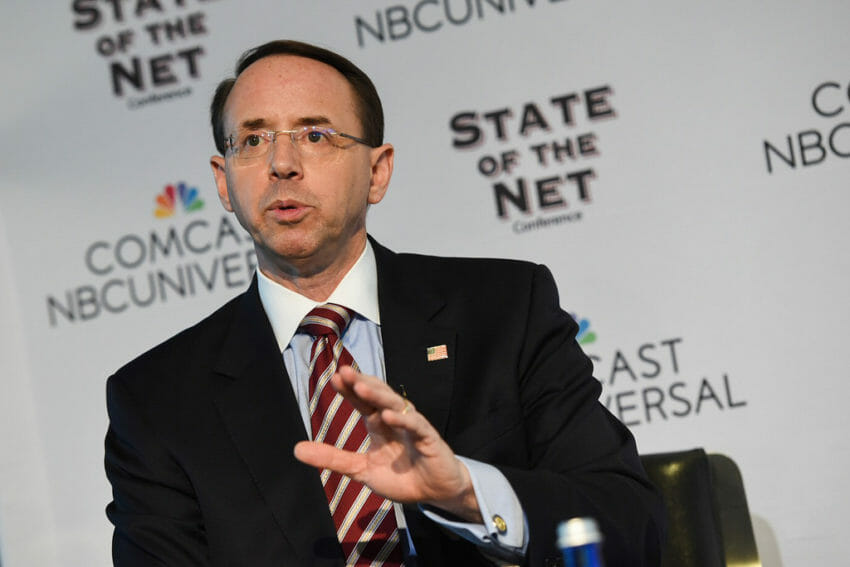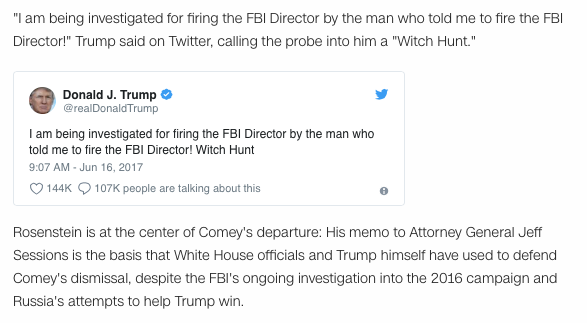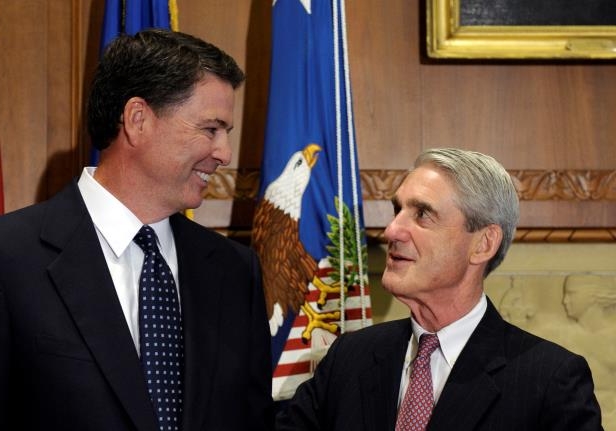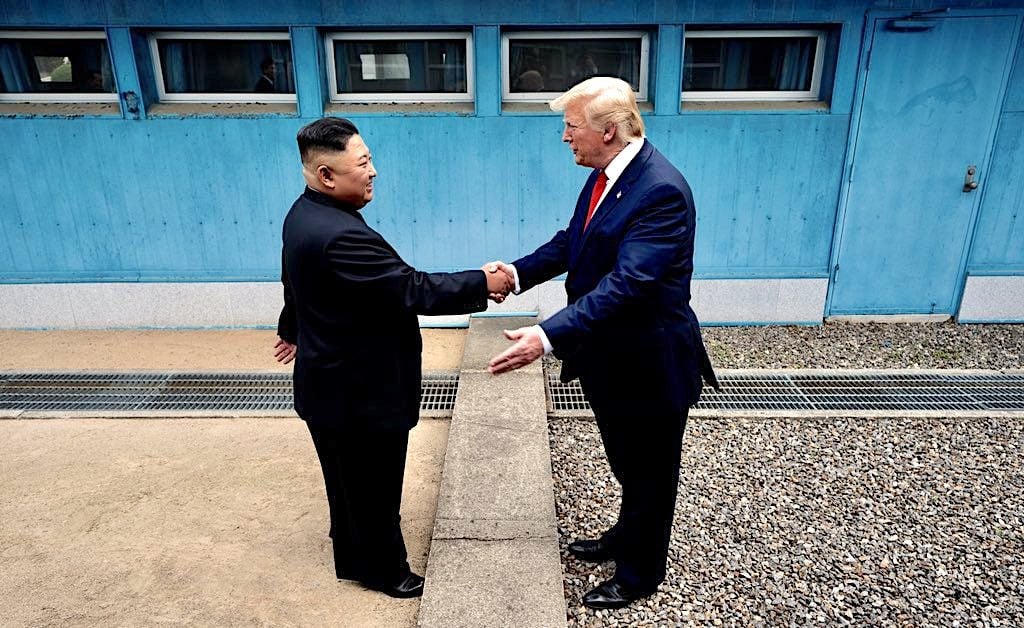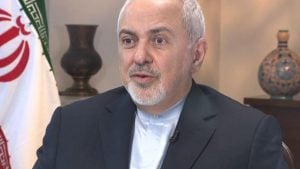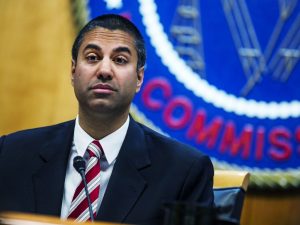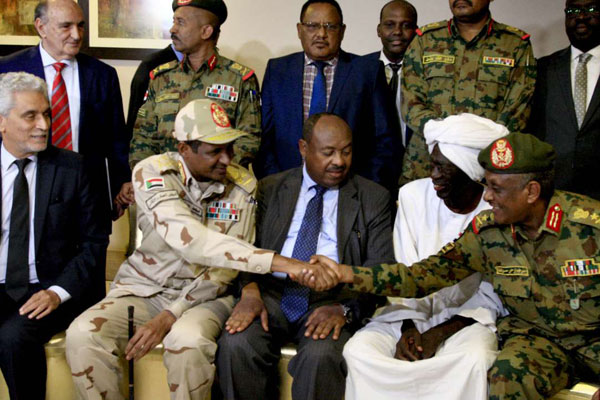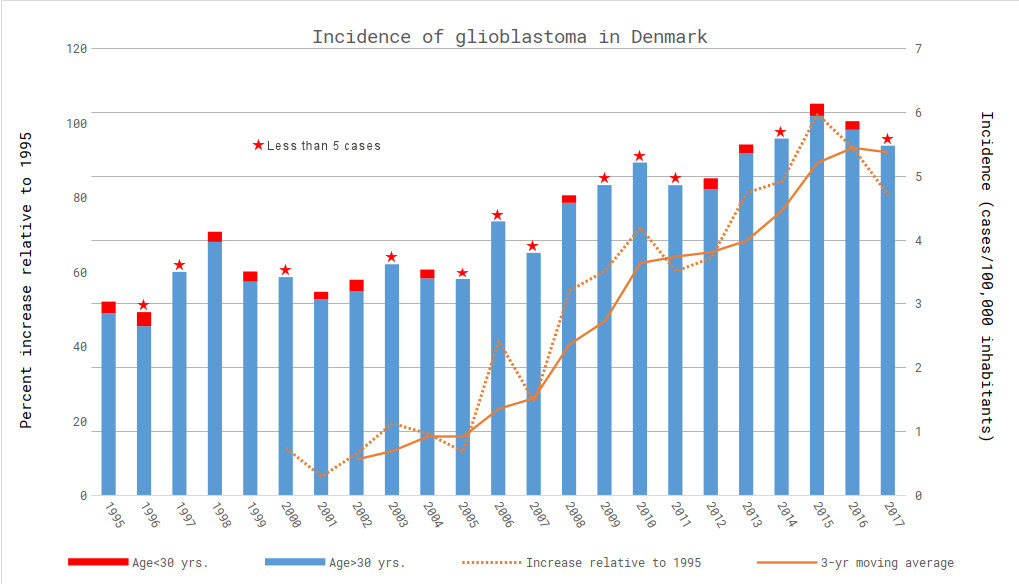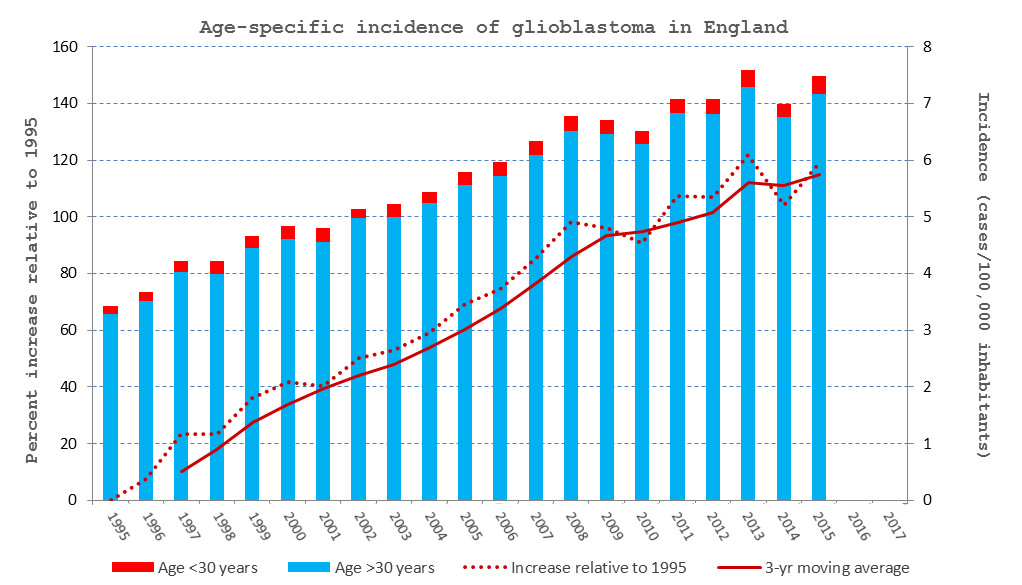As the Trump administration’s saber-rattling toward Iran threatens another disastrous war in the Middle East, foreign policy has gained newfound focus in the 2020 presidential race. And former Vice President Joe Biden’s 2002 vote in favor of the Iraq War leaves him with a particularly glaring vulnerability.
Biden’s vote had already become a sticking point in the race before President Trump began his provocations toward Iran in earnest. Bernie Sanders has used Biden’s record to draw a contrast with his own opposition to the Iraq War. Rep. Seth Moulton, another 2020 candidate, has called for Biden to admit he was wrong for casting the vote. And a recent POLITICO/Morning Consult poll showed more than 40 percent of respondents between 18 and 29 were less likely to back Biden because of it.
But to say the now-Democratic frontrunner voted for the Iraq War doesn’t fully describe his role in what has come to be widely acknowledged as the most disastrous foreign policy decision of the 21st century. A review of the historical record shows Biden didn’t just vote for the war—he was a leading Democratic voice in its favor, and played an important role in persuading the public of its necessity and, more broadly, laying the groundwork for Bush’s invasion.
In the wake of September 11th, Biden stood as a leading Democratic voice on foreign policy, chairing the powerful Senate Foreign Relations Committee. As President Bush attempted to sell the U.S. public on the war, Biden became one of the administration’s steadfast allies in this cause, backing claims about the supposed threat posed by Iraqi leader Saddam Hussein and insisting on the necessity of removing him from power.
Biden did attempt to placate Democrats by criticizing Bush on procedural grounds while largely affirming his case for war, even as he painted himself as an opponent of Bush and the war in front of liberal audiences. In the months leading up to and following the invasion, Biden would make repeated, contradictory statements about his position on the issue, eventually casting himself as an unrepentant backer of the war effort just as the public and his own party began to sour on it.
From Dove to Hawk
Biden hadn’t always been a hawk on Iraq. He had voted against the first Gulf War in 1991, though even his opposition to that war had been tepid at best, focused mainly on badgering George H.W. Bush into having Congress rubber stamp a war Bush had already made clear he was intent on waging with or without its approval.
In 1996 Biden criticized Republican claims that then-President Bill Clinton wasn’t being tough enough on Iraq amid calls to remove Saddam Hussein from power, labeling an ouster “not a doable policy.” Before the War on Terror drove U.S. foreign policy, Biden criticized Bush during his first year in office for the then-president’s hawkish position on missile defense.
September 11th changed all this. Only one day before the attacks, at a speech in front of the National Press Club, Biden had called Bush’s foreign policy ideas “absolute lunacy” and charged that his missile defense system proposal would “begin a news arms race.” But the nearly 3,000 Americans who were killed on U.S. soil that day upended the political consensus. Bush’s approval rating shot up to a historic 90 percent, and any elected officials who failed to match the president’s zeal for military retribution became vulnerable to accusations of being “soft on terror.”
“Count me in the 90 percent,” Biden said in the weeks after the attack. There was “total cohesion,” he said, between Democrats and Republicans in the challenges ahead. “There is no daylight between us.”
In November 2002, just a little over a year following the World Trade Center attacks, Biden faced re-election amidst a political climate in which the Bush administration had incited nationalist sentiment over the issue of terrorism. In October 2001, Biden had been criticized in Delaware newspapers for comments that were perceived as potentially weak, warning that the United States could be seen as a “high-tech bully” if it failed to put boots on the ground in Afghanistan and instead relied on a protracted bombing campaign to oust the Taliban.
Consequently, Biden, then deemed by the New Republic to be the Democratic Party’s “de facto spokesman on the war against terrorism,” quickly became a close ally of the Bush administration in its prosecution of that war. The White House installed a special secure phone line to Biden’s home, and he and three other members of Congress met privately with Bush in October 2001 to come up with a positive public relations message for the war in Afghanistan.
Biden’s stance on Iraq soon began to change, too. In November 2001, Biden had batted away suggestions of regime change, saying the United States should defeat al-Qaeda and Osama bin Laden before thinking about other targets. By February 2002, he appeared to have creaked opened the door to the possibility of an invasion.
“If Saddam Hussein is still there five years from now, we are in big trouble,” he told a crowd of 400 Delaware National Guard officers that month at the annual Officers Call event.
“It would be unrealistic, if not downright foolish, to believe we can claim victory in the war on terrorism if Saddam is still in power,” he said around the same time, echoing the language of hawks like Connecticut Sen. Joe Lieberman.
Biden soon developed the position he would hold for the following 13 months leading into Bush’s March 2003 invasion of Iraq: While the Bush administration was entirely justified in its plans to remove Hussein from power in Iraq, it had to do a better job of selling the inevitable war to the U.S. public and the international community.
“There is overwhelming support for the proposition that Saddam Hussein should be removed from power,” he said in March 2002, while noting that divisions remained about how exactly that would be done. If the administration wanted his support, Biden continued, they would have to make “a complete and thorough case” that Iraq possessed weapons of mass destruction (WMDs) and to outline what they envisioned a post-Hussein Iraq would look like.
It was a stance well-calibrated for the political climate. Biden could continue to point to disagreements with the administration for liberal audiences, even if they were merely procedural, while putting his weight behind the ultimate goal of war with Iraq. At the same time, Biden’s apparent criticisms doubled as advice for the administration: If you want buy-in from liberals for your war, this is what you’ll have to do.
“I don’t know a single informed person who is suggesting you can take down Saddam and not be prepared to stay for two, four, five years to give the country a chance to be held together,” Biden recounted telling Bush privately in June 2002.
It was a talking point he would repeat often over the next year, that regime change in Iraq was the correct thing to do, but would require a long-term commitment from the United States after Hussein’s removal.
Setting the Ground Rules
During frequent television appearances, Biden didn’t just insist on the necessity of removing Hussein from power, but appeared to signal to the Bush administration on what grounds it could safely seek military action against Iraq.
When Bush’s directive to the CIA to step up support for Iraqi opposition groups and even possibly capture and kill Hussein was leaked to the Washington Post in June, Biden gave it his approval. Asked on CBS’s “Face the Nation” if the plan gave him any pause, Biden replied: “Only if it doesn’t work.”
“If the covert action doesn’t work, we’d better be prepared to move forward with another action, an overt action, and it seems to me that we can’t afford to miss,” he added.
“Prominent Democrats endorse administration plan to remove Iraqi leader from power,” ran the subsequent Associated Press headline.
A month later in July, Biden affirmed that Congress would back Bush in a pre-emptive strike on Iraq in the event of a “clear and present danger” and if “the president can make the case that we’re about to be attacked.”
Asked on “Fox News Sunday” the same month if a discovery that Hussein was in league with al-Qaeda would justify an invasion, Biden replied:
“If he can prove that, yes, he would have the authority in my view.”
“And this will be the first time ever in the history of the United States of America that we have essentially invaded another country preemptively to take out a leadership, I think justifiably given the case being made.”
These themes would be used by the Bush administration in the months ahead to sell the war to the American public. The non-existent ties between Hussein and al-Qaeda became one of the most high-profile talking points for the war’s proponents. And the Bush administration would publicize the supposedly imminent threat Hussein posed to the United States, including then-National Security Advisor Condoleezza Rice’s infamous September declaration that “we don’t want the smoking gun to be a mushroom cloud.”
By July Biden appeared to rule out a diplomatic solution to the conflict. “Dialogue with Saddam is useless,” he said.
Not a Skeptic to be Heard
It was also in July 2002 that Biden carried out one of his most consequential actions in the lead-up to the Iraq War, when he held several days of congressional hearings about the then-potential invasion.
Biden stressed the hearings weren’t meant to antagonize the White House. Rather, as he explained, they would inform the American people about the stakes of the conflict and the logistical issues involved in waging it.
At the time, the pro-war stance shared by the administration, much of the press, and Democrats like Biden was by no means unanimous. Many of the United States’ closest allies in Europe (apart from Tony Blair’s British government) were wary of the war drums beating from Washington, as were many Arab states. In July, King Abdullah II of Jordan, a U.S. ally in the Middle East, called the idea of an invasion “somewhat ludicrous.”
The same month, the Houston Chronicle reported, based on interviews with anonymous officials, that a number of senior military officials, including members of the joint chiefs of staff, were in disagreement with the White House’s drive for war with Iraq, and believed that Hussein posed no immediate threat to the United States. The day before the hearings, Scott Ritter, the former chief weapons inspector at the UN, cautioned that it was far from “inevitable” that Iraq had restarted its weapons program, and warned that “Biden’s open embrace of regime removal in Baghdad” threatened to make the hearings “devolve into a political cover” for Congress to authorize Bush’s war.
Yet as Stephen Zunes reported for The Progressive in April 2019, none of these views were aired at Biden’s hearings, which opened with Biden stating that WMDs “must be dislodged from Saddam, or Saddam must be dislodged from power,” and that “if we wait for the danger from Saddam to become clear, it could be too late.” Ritter himself was never invited to testify.
Neither were other experts critical of the Bush narrative on Iraq, including Rolf Ekéus, the former executive chairman of the United Nations Special Commission, the inspection regime set up after the Gulf War to deal with WMDs, and former UN Assistant Secretary General Hans Von Sponeck, who complained that he was “very agitated by the deliberate distortions and misrepresentations” that made it “look to the average person in the U.S. as if Iraq is a threat to their security.” According to Biden, Bush later thanked him for the hearings.
By Zunes’ count, none of the 18 witnesses who were called objected to the idea that Hussein had WMDs, and all three witnesses who testified on the subject of al-Qaeda claimed the organization received direct support from Iraq—the very red line Biden had said would give Bush the authority to invade the country. Out of the 12 witnesses who discussed an invasion, half were in favor and only two opposed. Biden himself said throughout the hearings that Iraq was a national security threat.
It was largely up to Republicans on the committee—namely Lincoln Chafee and Chuck Hagel—to voice skepticism about a war effort. Ritter accused Biden and other members of congress of having “preordained a conclusion that seeks to remove Saddam Hussein from power regardless of the facts.” Indeed, on the day of the hearings, Biden had co-authored a New York Times op-ed suggesting that continued “containment” of Hussein “raises the risk that Mr. Hussein will play cat-and-mouse with inspectors while building more weapons,” and that “if we wait for the danger to become clear and present, it may be too late.”
Having given a platform to pro-war talking points, Biden then hit the talk show circuit to cite the lopsided testimony he himself had arranged in order to argue for war. Determining Hussein’s intentions was “like reading the entrails of goats,” Biden told NBC’s “Meet the Press,” and what mattered more was Hussein’s ability to use WMDs, whatever those intentions might be. He pointed to testimony in the July hearings to argue it was clear that Iraq had such weapons.
“We have no choice but to eliminate the threat,” he said. “This is a guy who’s an extreme danger to the world.”
While the mainstream press featured few skeptical and anti-war voices at the time, a number of them assailed Biden for going along with the Bush administration.
“Biden apparently believes that he fulfills the constitutional function of advise and consent by merely being the cheerleader for the administration’s rising chorus demanding war with Iraq,” wrote Stanley Kutler in the Milwaukee Journal Sentinel. “When and how are the only questions in his repertoire.”
“A Course of Moderation and Deliberation”
By fall 2002, Bush appeared to have heeded Biden’s frequent exhortations for how to sell the war.
On September 12, almost a year to the day of the terrorist attacks that had sparked the march to war, Bush went before the UN to make a case for an invasion directly to the international community. Biden praised him for doing “a very good job” in making that case with a “brilliant” speech, and again stressed that “this is the world’s fight,” though cautioning that “the worst option is going it alone, but it is an option.”
That September, Bush also finally asked Congress for a war authorization. While the president backed an expansive resolution in the House, Biden and fellow Foreign Relations Committee member Richard Lugar (R-Ind.) put forward their own rival resolution in the Senate that scaled back some of the House version’s more alarming language and stressed the themes Biden had been articulating for the better part of a year. The Senate resolution limited the use of force to Iraq, made dismantling WMDs the primary justification for war, and stressed the importance of international support (though reserving the right to act unilaterally if the UN Security Council moved too slowly).
“We are trying to give the president the power that he needs and get a large vote,” Biden explained.
Bush quickly routed Biden by making a compromise with Democratic House Minority Leader Dick Gephardt that swung momentum behind the House resolution. Deciding it was too late, and that there was no way of stopping its passage, Biden simply resigned himself to the compromise House resolution.
“In this place, everybody’s pretty practical at the end of the day,” he said.
Bush ultimately won over Biden by incorporating several of his suggestions into the final resolution and a speech he gave on October 7, 2002, in which he painted Iraq as a “grave threat to peace” creating an “arsenal of terror.” He had “made a compelling case,” said Biden, who was “very pleased with his rationale that he laid out.”
While Biden reportedly wavered at the last moment on his promise to cast his vote, he ultimately fell in line, arguing the resolution would “give the president the kind of momentum he needs” to get Security Council backing. On October 11, Biden was one of 77 senators who voted to give Bush the authorization to wage war on Iraq, joining fellow Democrats such as Hillary Clinton, Chuck Schumer, Harry Reid and Dianne Feinstein. Twenty-one Democratic senators, including Dick Durbin, Ron Wyden and Patrick Leahy, voted against it.
“At each pivotal moment, [President Bush] has chosen a course of moderation and deliberation,” Biden said on the Senate floor. “I believe he will continue to do so … the president has made it clear that war is neither imminent nor inevitable.”
A month later, Biden sailed to a sixth term to the Senate with 58 percent of the vote.
“Powerful and Irrefutable”
Biden wasn’t as eager to tout his leading role in the lead-up to the Iraq War in front of all audiences.
On November 11, 2002, Biden gave a speech at a meeting of the Trotter Group, an organization of African-American columnists. Perhaps owing to strong black opposition to the war, including the NAACP board’s October 28, 2002, adoption of a resolution opposing the invasion, Biden sounded very different notes in front of the audience. He denied there was a direct link between Hussein and al-Qaeda (“I don’t consider the war on Iraq the war on terror”) and struck a less hawkish note (“My hope is that we don’t need to go into Iraq”).
After chairing hearings filled with pro-war testimony, Biden told the Trotter Group crowd that “the guys who have to fight this war don’t think it’s a good idea,” and that doing so would be “the dumbest thing in the world.” Discussing the war authorization he had voted for, he claimed that Republicans had taken “something that nobody, including the president, believes is an imminent danger and moved it up in the election cycle,” and that he reluctantly supported the final resolution in order to give then-Secretary of State Colin Powell leverage to get a resolution out of the UN that would slow the administration’s march to war.
Yet even as he painted himself as a war opponent, Biden’s role in making the war happen wasn’t finished.
In December 2002, Biden embarked on a trip to Germany and the Middle East with Republican Sen. Chuck Hagel to cobble together a coalition for the impending war. He first flew to Germany to meet with an Iraqi resistance leader, then headed to Jordan to meet with its monarch, before stopping in Israel and Qatar. The Delaware Republican Party sent him its best wishes.
“We wish the senator good luck and hope he continues to support the president on foreign-policy matters,” its chairman said.
At one point, Biden spoke to the Kurd Parliament in Kurdish-controlled northern Iraq, carved out in the wake of the first Gulf War. Biden made clear to the Kurds, longtime opponents of Hussein’s regime, that the United States had their back.
“We will stand with you in your effort to build a united Iraq,” he told them, adding that “the mountains are not your only friends,” playing off a local saying.
As Colin Powell prepared to present supposed evidence of Iraq’s WMD program to the UN in February—a factually flawed address that Powell two years later would call a “blot” on his record—Biden hyped the presentation to the press, saying the administration “has evidence now that can change people’s minds.”
“I know there’s enough circumstantial evidence that if this were a jury trial, I could convict you,” he said. After Powell’s address, Biden called his case “very powerful and I think irrefutable,” and told him, “I am proud to be associated with you.”
At the same time, Biden spent much of the rest of the month leading up to invasion painting himself as its opponent. He criticized Bush for everything but the actual decision to remove Hussein: for failing to make a sufficiently strong case to the public, for not securing more international buy-in for the invasion, for keeping Congress out of the loop and for grossly lackluster planning for postwar Iraq.
“As every hour goes by, I think the chance of war is increasing,” he said in early March, five months after voting to give Bush the power to invade Iraq. “I was hoping it wasn’t, hoping there was a shot at doing this peacefully, but that looks slimmer and slimmer.”
Yet even after Bush failed to secure the international cooperation Biden had spent months insisting was necessary, the lack of support wasn’t enough to convince Biden to abandon his support. As Bush issued an ultimatum to Hussein on March 17—leave or be invaded—Biden was behind him.
“I support the president,” he said after meeting with Bush and other officials before the ultimatum. “Diplomacy over avoiding war is dead. … I do not see any alternative. It is not as if we can back away now.”
Biden portrayed himself as someone who had been powerless to stop the conflict.
“A lot of Americans, myself included, are really concerned about how we got to this stage and about all the lost opportunities for diplomacy,” he said. “But we are where we are. … Let loose the dogs of war. I’m confident we will win.” He and the rest of the Democrats voted to pass a Senate resolution 99-0 supporting Bush and commending the troops.
Months after the war was launched and Hussein was deposed, any reservations Biden claimed to have had about the war appeared to melt away.
“I, for one, thought we should have gone in Iraq,” he told CNN in June 2003, while noting that not all Democrats had been as enthusiastic about invading the country.
With the much-ballyhooed WMDs failing to materialize, Biden cast himself as a skeptic about the administration’s claims about their existence.
“I also said at the time, as far back as August, that I thought the administration was exaggerating the threat of weapons of mass destruction,” he told CNN.
During an appearance on “Fox News Sunday” later that month, he told host Tony Snow that he had never believed the Bush administration’s rhetoric on the issue, and that it had erred in exaggerating the threat, as there was sufficient grounds to invade Iraq based on the weapons it was reported to have in 1998.
“So you think, looking back on it, still, that it was a just war, in your opinion?” asked Snow.
“Oh, I do think it was a just war,” said Biden.
After playing a clip of then-presidential candidate Howard Dean boasting of his opposition to the war even at the height of its popularity, Snow asked Biden if Dean’s position should be the consensus view of the Democratic Party.
“No,” Biden flatly replied.
Even as the war effort rapidly went awry in the months that followed, with U.S. soldier deaths continuing to climb after major combat operations were declared over on May 1 and terrorist attacks becoming a regular feature of Iraqi life, Biden continued to insist that war had been the right course of action.
“I voted to go into Iraq, and I’d vote to do it again,” he said at a July 2003 hearing.
As growing numbers of Democrats, and even members of the general public, turned against the war, Biden rebuked them, implicitly and explicitly.
“In my view, anyone who can’t acknowledge that the world is better off without [Hussein] is out of touch,” he said two days later.
“Contrary to what some in my party might think, Iraq was a problem that had to be dealt with sooner rather than later,” he insisted.
An increasingly lonely voice in a party that would soon make common cause with the growing anti-war movement, Biden continued to back Bush.
“The president made [the case against Saddam] well,” he concluded on July 31. “I commend the president.”
No Regrets
In the eyes of the public, a vote for the resolution that gave Bush the authority to wage war on Iraq is enough to cast serious doubt on a candidate’s judgment, as Hillary Clinton learned in 2016. But the fact is, Joe Biden did a lot more than cast a vote.
As an experienced and respected voice on foreign policy, a powerful Democrat, and someone widely perceived as a dove due to his opposition to the Vietnam war, Biden’s backing of regime change in Iraq was crucial to Bush’s effort of selling the public on the war. Biden’s insistence that Hussein posed a serious threat to the United States, possessed WMDs and needed to be removed from power helped create momentum for the rising pro-war campaign. And as chair of the Senate Foreign Relations Committee, rather than question the prominent voices of doubt, including senior members of the U.S. military, Biden stacked his Iraq hearings with voices in agreement with Bush’s fallacious case for war.
Hillary Clinton’s hawkishness—including her vote for the Iraq war—was one of several factors that likely contributed to her 2016 loss to Donald Trump in key traditional Democratic states. But beyond arguments about electability, the next president will inherit a volatile world on the brink of several different conflicts, including a possible showdown with Iran. When voters choose the next Democratic nominee, they’ll have to decide whether someone who helped lead the march to war in Iraq is really the best person to take on Trump—and guide U.S. foreign policy as president.
*
Note to readers: please click the share buttons above or below. Forward this article to your email lists. Crosspost on your blog site, internet forums. etc.
This investigation was supported by the Leonard C. Goodman Institute for Investigative Reporting.
Branko Marcetic is a staff writer at Jacobin magazine and a 2019-2020 Leonard C. Goodman Institute for Investigative Reporting fellow. He hails from Auckland, New Zealand, where he received his Masters in American history, a fact that continues to puzzle everyone who meets him. You can follow him on Twitter at @BMarchetich.

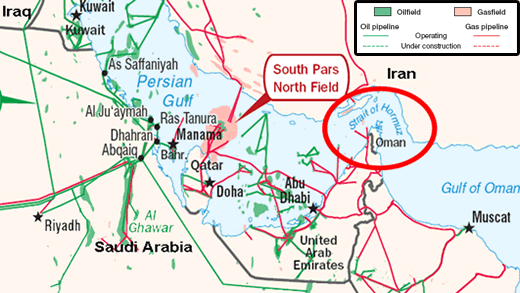
















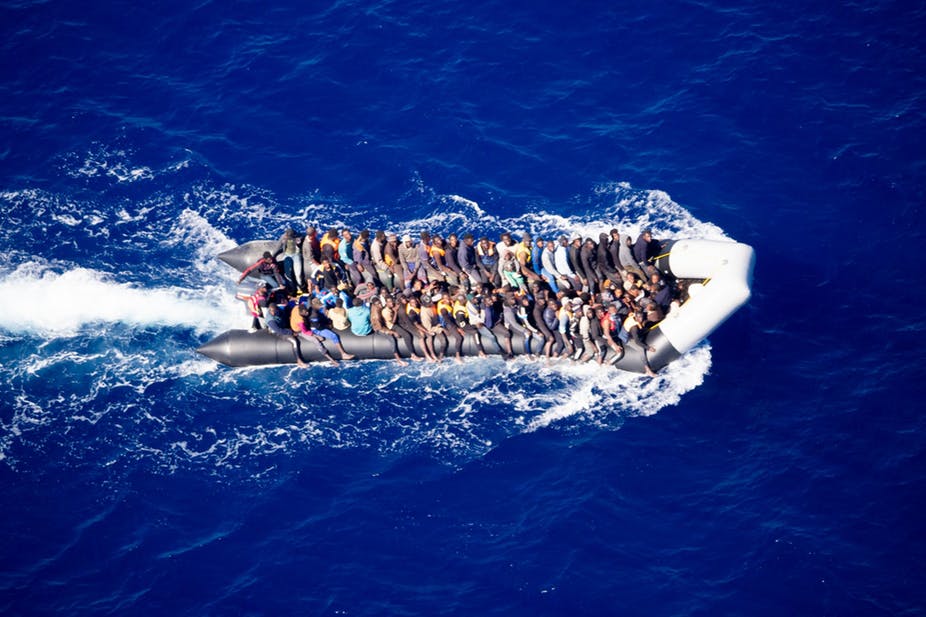
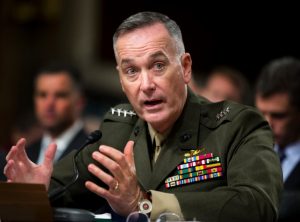



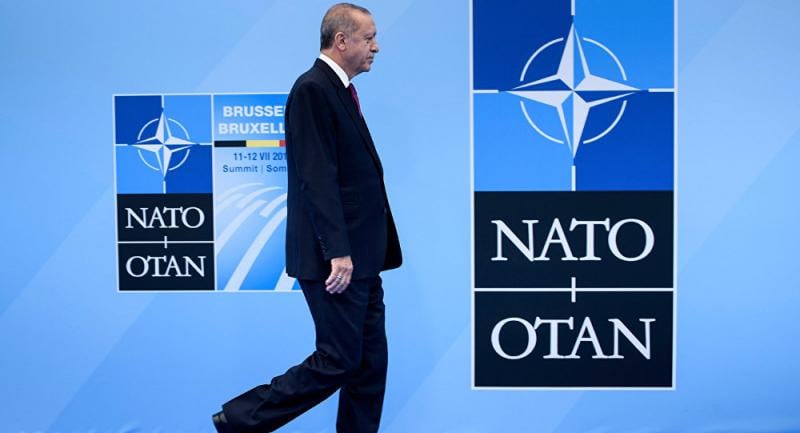 While Turkey is still “officially” a member of NATO, president Recep Tayyip Erdoğan (right) has for the last two years been developing “friendly relations” with two of America’s staunchest enemies, namely Iran and Russia.
While Turkey is still “officially” a member of NATO, president Recep Tayyip Erdoğan (right) has for the last two years been developing “friendly relations” with two of America’s staunchest enemies, namely Iran and Russia.